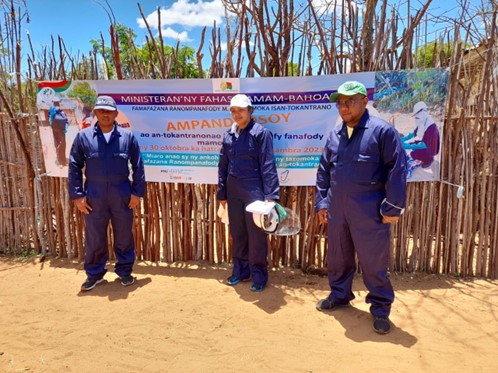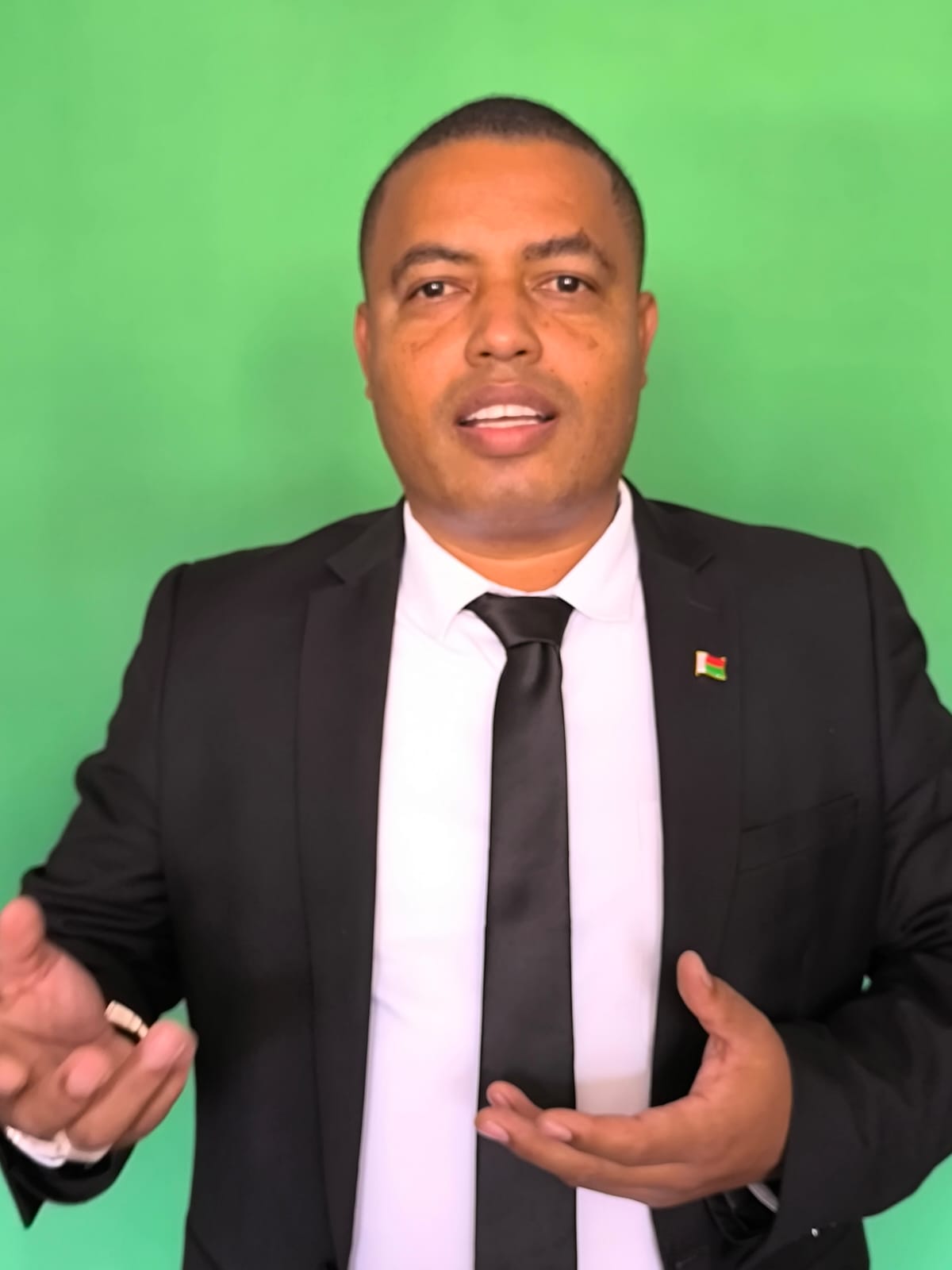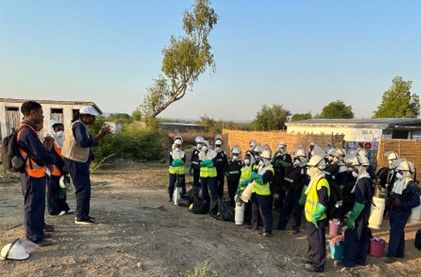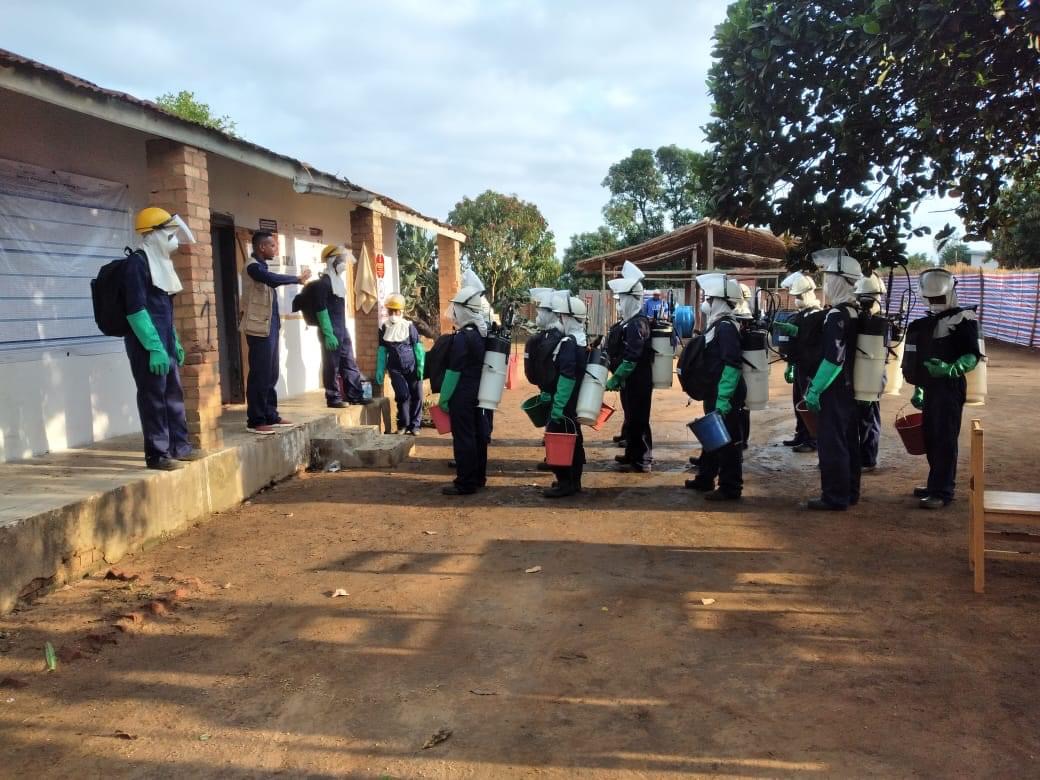The U.S. President’s Malaria Initiative (PMI) has partnered with country governments since 2006 in the fight against malaria, often taking the lead in implementing prevention efforts in malaria-endemic communities. Last year, PMI worked with Madagascar’s National Malaria Control Program (NMCP) to pilot a new approach, with NMCP staff in the driver’s seat to lead the implementation of the 2023 indoor residual spray (IRS) campaign in the Ankazoabo District.
In September, representatives from the NMCP, the Ministry of Public Health (MOPH), and the PMI Evolving Vector Control to Fight Malaria Project (PMI Evolve) selected Ankazoabo district for this pilot initiative. Ankazoabo was chosen based on its high incidence of malaria cases, its proven success in supporting prior campaigns led by PMI, and the availability of storage facilities for insecticide and other spray commodities. The group tapped three NMCP staff—a district coordinator, environmental compliance and safety officer, and finance and administrative assistant—to fully lead all IRS operations.
As a first step, PMI Evolve trained the three NMCP staff, reinforcing knowledge they had previously gained through observing PMI-led campaigns, and strengthening their abilities to lead trainings and engage local leaders and residents in the campaign.

Dr. Brusa Andriamino, the National Director of the MOPH’s Directorate for Transmissible Diseases, played a key role in helping to engage local actors. Noting that community participation would be critical to having a successful campaign, he said, “It was important that we engaged communities in the whole process, from the beginning of the campaign through to the end.”

Early in the planning stages, the NMCP IRS operations team met with representatives from the communities that would receive IRS, and spoke with traditional authorities, religious leaders, schoolteachers, village chiefs, and others. During these community education sessions, they shared messages about malaria prevention, the effectiveness of IRS, and what to expect from the campaign. At the same time, they were managing some of the essential pre-spray activities, including establishing a timeline for spray operations, identifying the operational sites, and recruiting spray team members from the local communities, and then training them.
When the campaign launched in late October, the NMCP team assumed responsibility for the overall implementation of the day-to-day operations, including managing the spray teams, logistics, warehouses, and ensuring environmental compliance for insecticide usage, with support from PMI Evolve. PMI Evolve also provided close supervision and support to ensure that the IRS was delivered in accordance with both PMI and the Government of Madagascar standards, and to verify that the data collection was accurate and entered correctly in the daily monitoring and reporting process. With this light support, the government staff successfully completed the spraying of 20,613 structures in the community, protecting 85,385 people against malaria.
Dr. Andriamino characterized this first implementation of locally led IRS as a success. “This was a very practical training and exercise,which strengthened the local team’s ability to manage such a campaign,” he noted. “The local team learned how to conduct effective community dialogue. They also gained a deeper understanding of the importance of monitoring the campaign. The monitoring process was of primordial importance, as it gave the local team the opportunity to analyze any challenges, offer solutions in a timely manner, and keep the campaign on track.”
Looking ahead to next year’s campaign, Dr. Andriamino is already thinking about ways to deepen community participation and increase the number of NMCP-led IRS districts. “In the future, we could involve community members more in the monitoring and data collection processes of the campaign,” he said. “We need to keep the dialogue going with the communities,” he said. “We need to inform communities of the results we have attained and listen to their advice for how things can be improved.”



